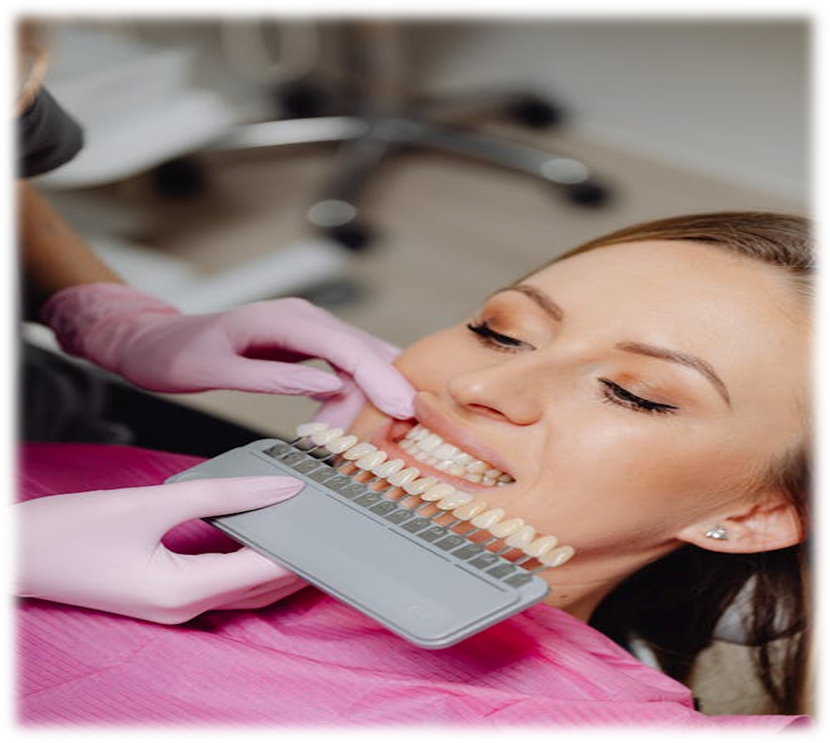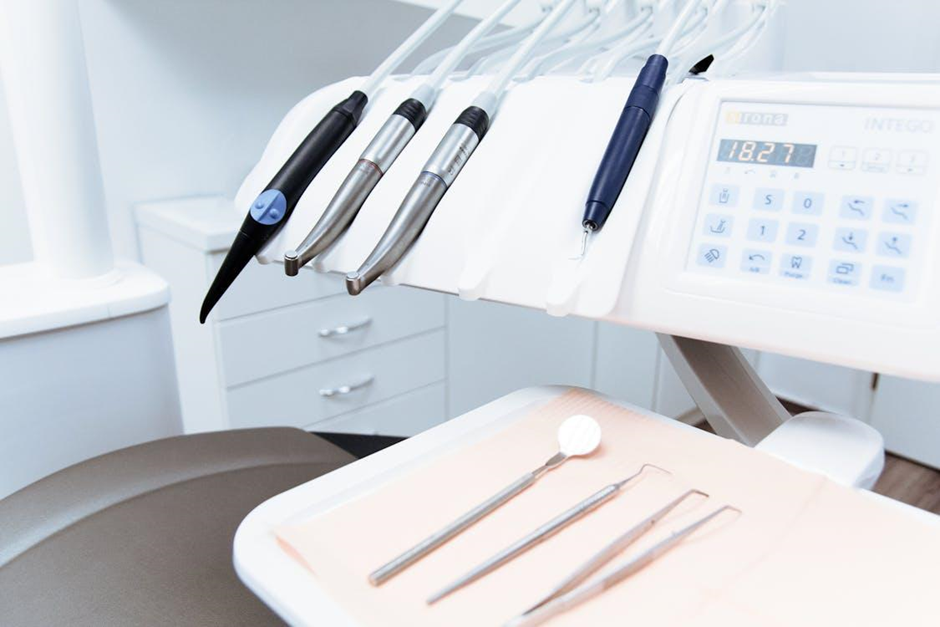Gum Disease Symptoms & Treatment
Gum Treatment

Most of us don’t pay much attention while we’re brushing our teeth, but if you’ve started experiencing some pain and noticing bright red marks when you rinse your mouth, then it’s something to be concerned about. Although it might not be something serious, it’s important to know the basic signs of gum disease and what the treatment options are.
Gum disease is also known as periodontal disease, and while it starts with bacteria growth and slight pain, it can end in complete tooth decay.
The Symptoms of Gum Disease
Gum disease often shows its symptoms after it has spread considerably. That being said, the signs start early on and keep growing. They include:
- Bleeding gums during and after brushing your teeth
- Swollen and tender gums
- Receding gums
- Changes in the way your teeth fit together if you bite down on something (this includes a shift in the placement of dentures if you have any)
- Loose teeth or movement of teeth
- Prolonged smelly breath
- A constant weird taste in your mouth
- Development of deep pockets in between the gums and teeth
In some cases, the symptoms might be so minor or non-existent that you may not even realize you have gum disease. For many people, it only impacts certain areas of the mouth, like the molars. This is why you need to get your teeth checked periodically so that your dentist can keep track of any such problems and provide treatment recommendations.
How Does Your Dentist Identify That You Have Gum Disease?
If you’ve gone for a dental examination, the dentist will check for the following things:
- Bleeding or swollen gums, the space between your teeth and gums (the more space there is, the more serious the disease), and the firmness of your teeth
- Movement, sensitivity, and alignment of your teeth
- The structure of your jawbone.
Treatment of Gum Disease
The aim of gum disease treatment in Dubai is to heal your gums and realign the position of your teeth on the gums. This involves tackling swollen gums, reducing the depth of gum pockets, and preventing the disease from spreading in the mouth.
Treatment plans depend on how much the disease has grown. If it’s in the earlier stages, it can be treated with non-surgical procedures like:
- Getting Your Teeth Professionally Cleaned– this involves removing plaque and tartar (hardened plaque) that have accumulated on your teeth and the top part of your gums that are in contact with your teeth. If your teeth show some symptoms of gum disease, your dentist might advise you to opt for dental cleaning every six months. Essentially, this is not a solution for gum disease but is more of a preventative measure to keep it from growing into something that can cause problems.
- Root Planing & Scaling– this involves deep cleaning of the teeth. Plaque and tartar are scraped off the teeth, and the rugged surface of your teeth is smoothed out. Planing the teeth removes any stored bacteria and keeps germs from sticking to them. It also provides a smooth, stable surface for the gums to attach onto. Your dentist may recommend this option if you have excessive plaque and tartar buildup under your gums.
- Medication & Toothpaste Prescription– in some cases, the problem is easy enough to solve with medication and antibacterial toothpaste. These can be used to kill the harmful bacteria that tend to accumulate in your mouth. In some cases, the medication may be a precursor for surgery. Some medicines are similar to mouthwashes and are used to rinse your mouth clean. Some doctors also prescribe special chips that can be placed inside your mouth and have properties that can kill the accumulated bacteria. Others involve inserting a chip in your mouth that cleans it from the inside over time.
If the gum disease has grown and is in its later stages, your dentist will recommend surgery. This is usually the case when your teeth are too unhealthy to be fixed with non-surgical options. Different procedures may be required, depending on the state of your gums:
- Pocket Reduction (Flap Surgery) – this treatment involves lifting the gums back into place and cleaning out the accumulated tartar. The damaged surfaces of your teeth may also be filled in to keep bacteria from collecting there. The aim is to reduce the space between the teeth and gums, making sure they fit together properly to avoid serious health concerns due to periodontal disease.
- Soft Tissue Grafting– this involves filling in and adding tissue to areas that have thinned out, again to reduce the gap between your teeth and gums.
- Bone Grafting– as the name suggests, this treatment involves using bone fragments (your own or provided by the dentist) to encourage the original bone to grow back in.
- Bone Surgery– if you’ve experienced bone loss due to gum disease, bone surgery will smooth out the crater in your teeth. It may also be required after flap surgery to help your teeth fit into your gums properly and close up any spaces where bacteria can accumulate.
- Tissue Regeneration– this treatment encourages bone and gum tissue to grow in cases where the bone supporting your teeth has deteriorated. It is usually performed with flap surgery and involves adding something soft between the bone and gum to keep the gum tissue from growing in the bone’s place.
Keep Your Teeth & Gums Healthy
In some cases, the swelling and pain in your gums may be caused due to gingivitis (gum inflammation due to the accumulation of bacteria). However, you can’t be sure until you get it checked. Your dentist will let you know how serious the problem is and will recommend treatment if you have gum disease.
Gum disease is somewhat genetic, so even if you have really good oral hygiene, if someone in your family has it, you’re prone to it too. In this case, it’s advisable to get more frequent checkups. Some ways of steering clear of gum disease are to eat healthily, avoid smoking, stay stress-free, and not grind or pressing down on your teeth.
Sometimes, even if you’re cautious, gum disease can still affect you. The best way to deal with it is to consult your periodontist in Dubai and get it treated as soon as possible to prevent any serious oral problems in the future.
Book an Appointment With Your Doctor NOW!
Ready for a brighter smile? Schedule your appointment with Dr. Paul’s Dental Clinic today and experience exceptional dental care.
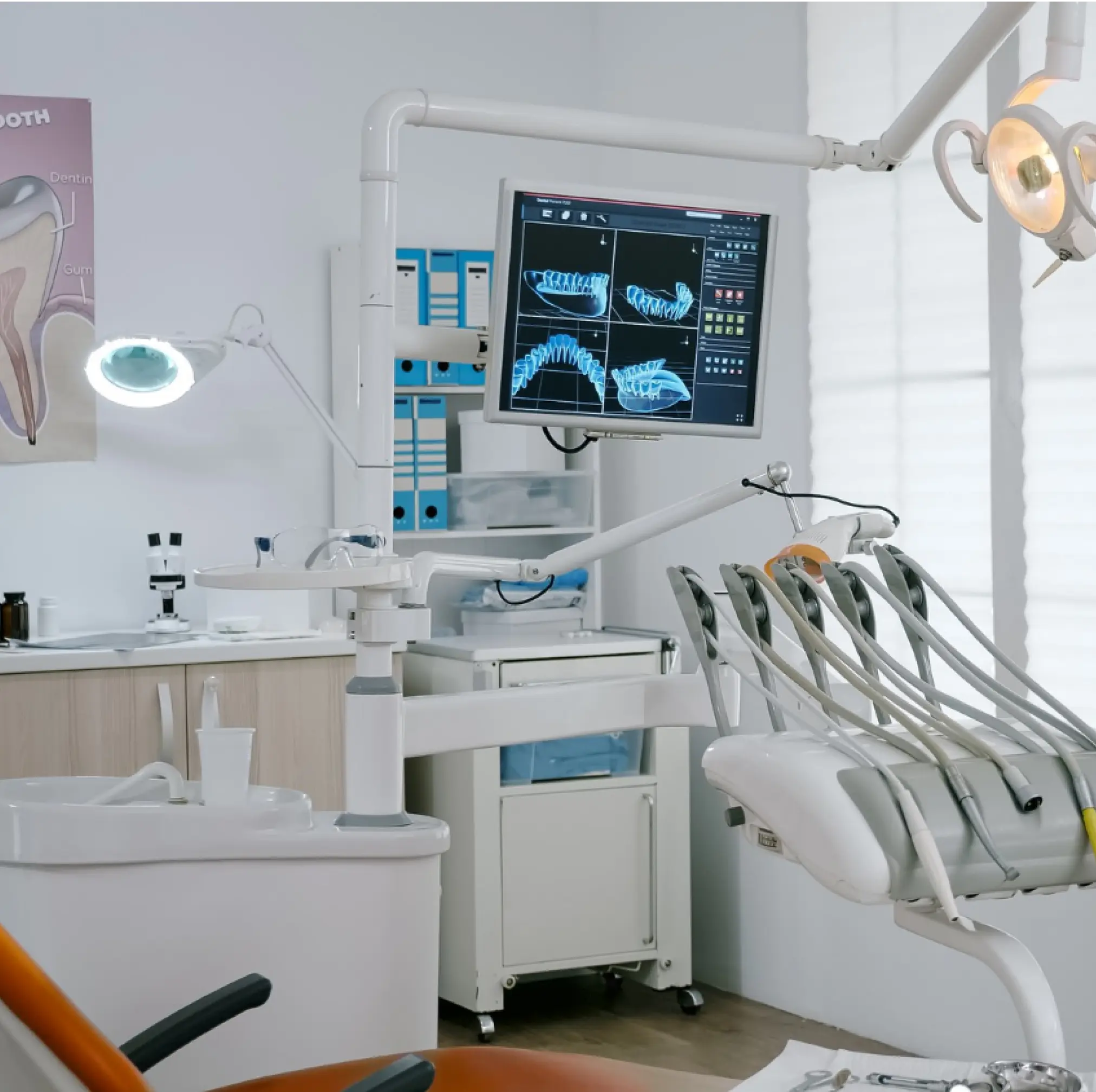
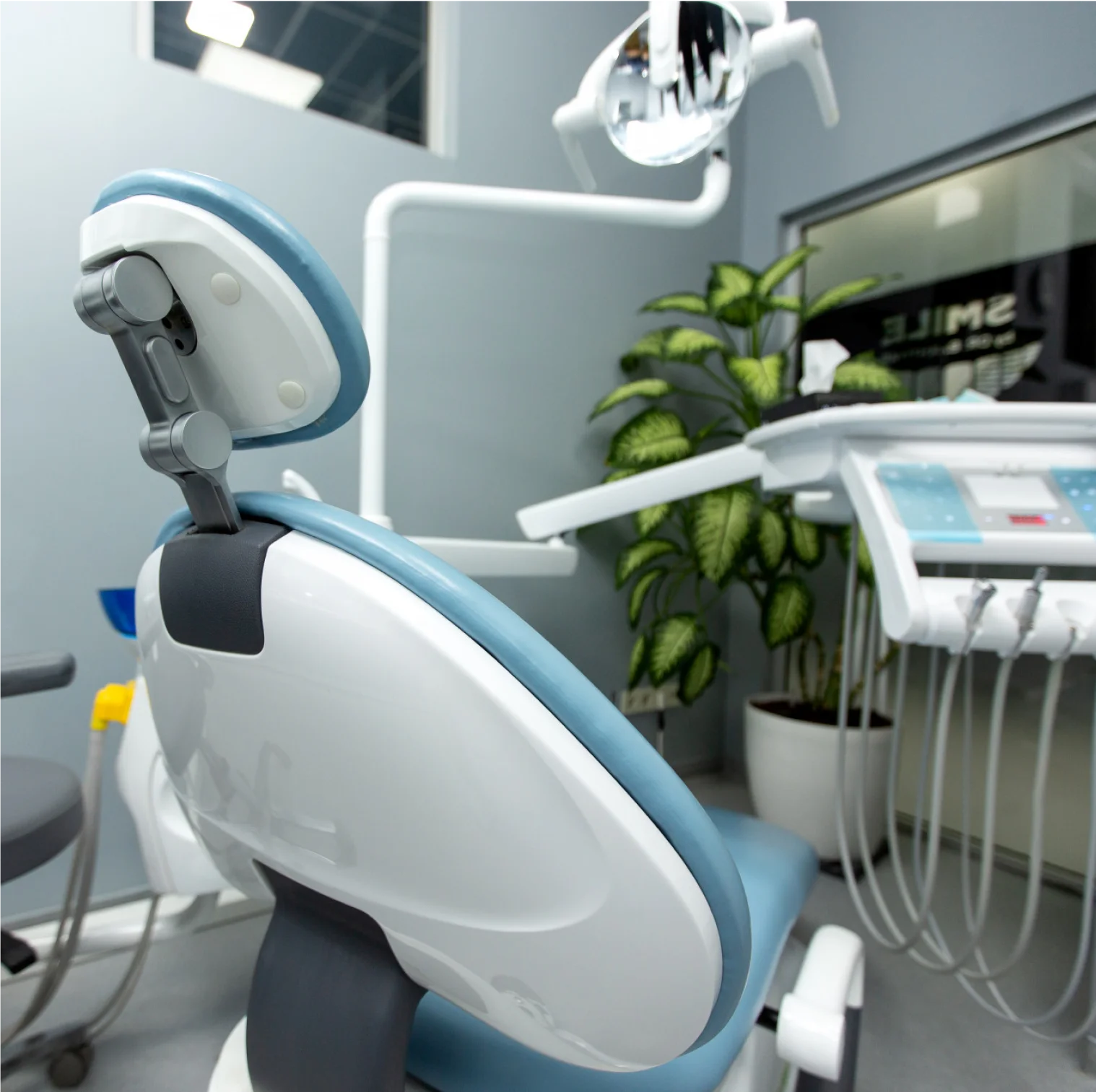
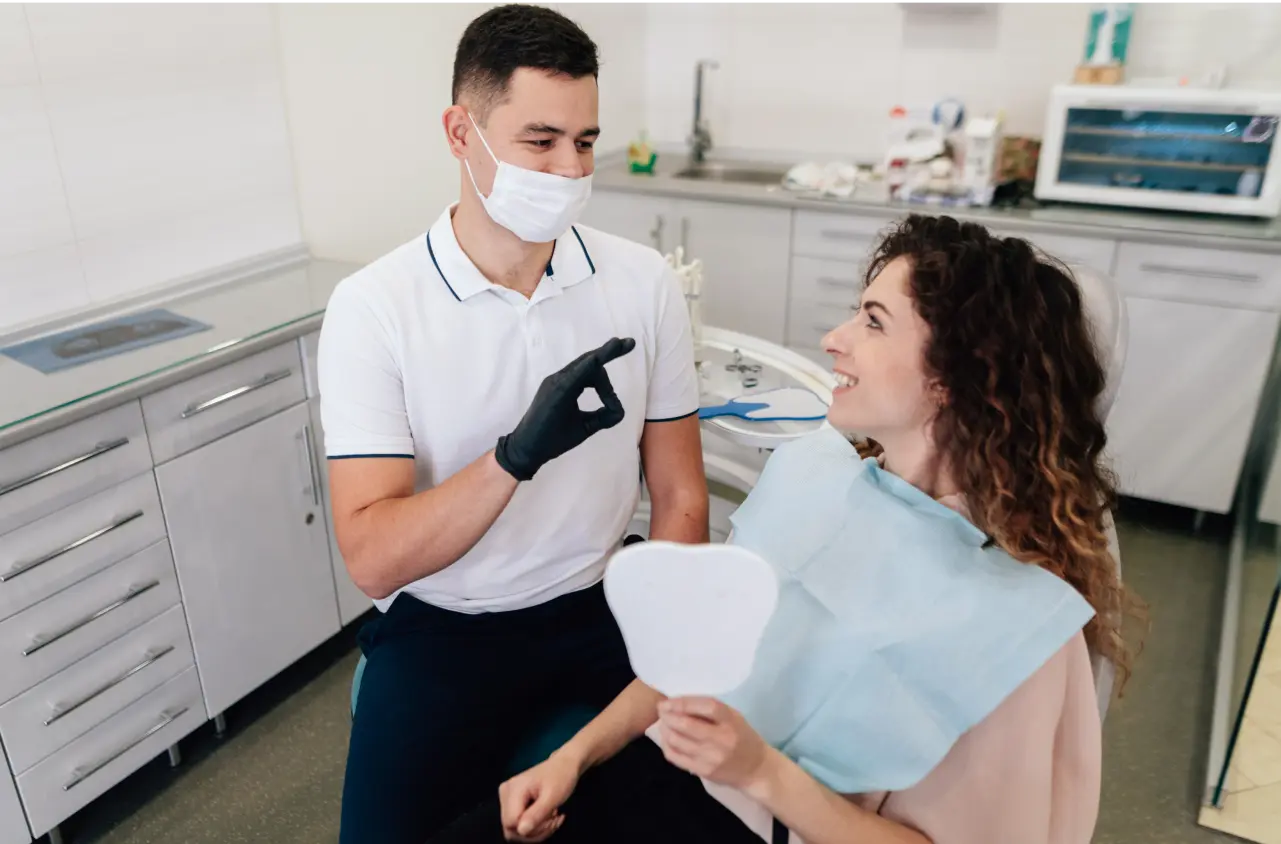
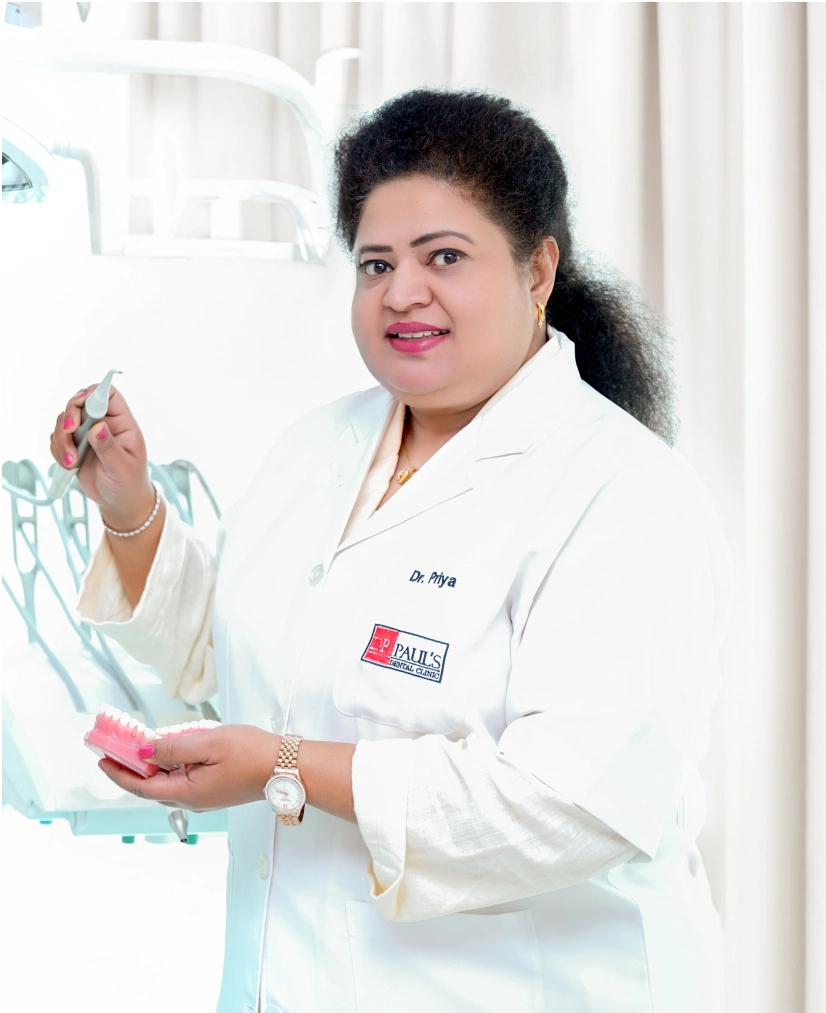 Dr. Sathyapriya Surendar
Dr. Sathyapriya Surendar 
